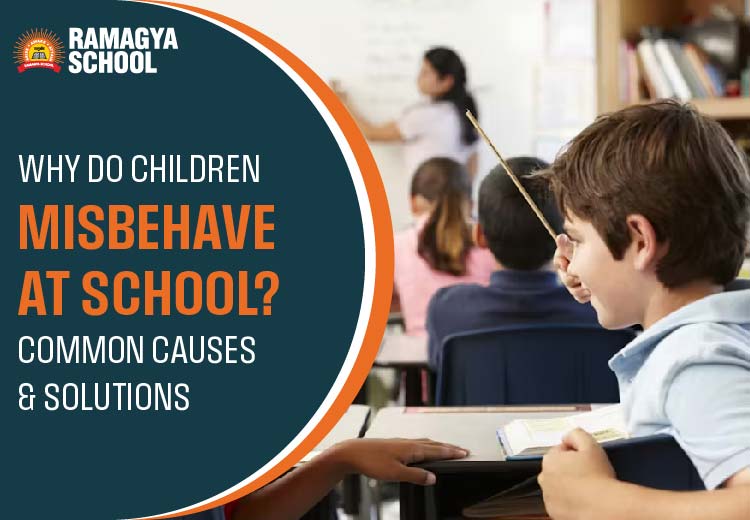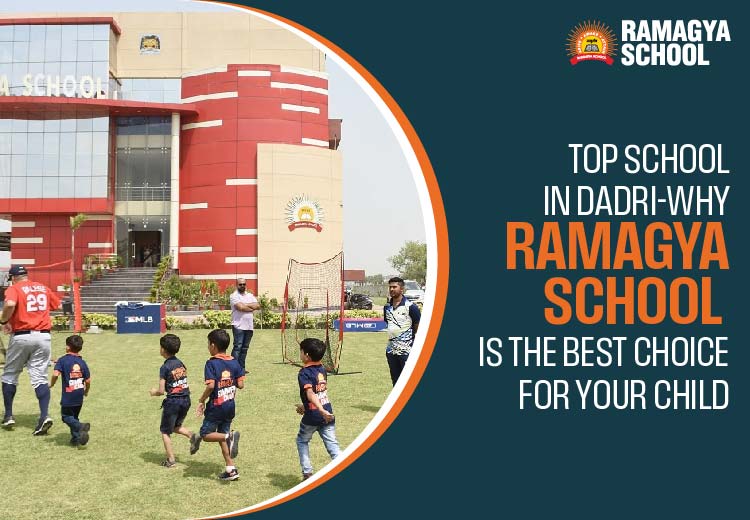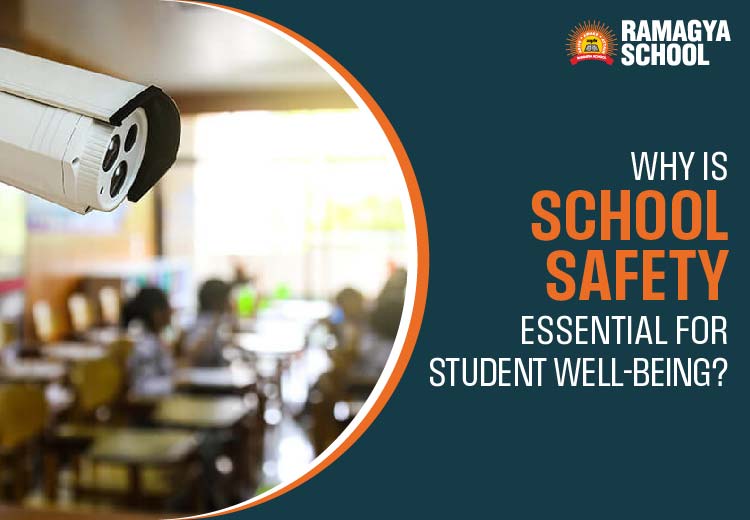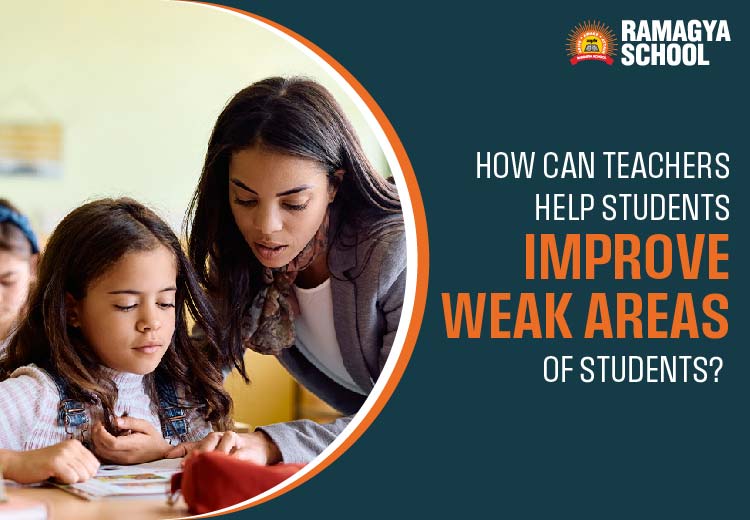Have you ever looked at a child in the classroom and wondered, “Why is this child shouting, disturbing others, or not listening today?” Maybe yesterday they were fine. So, why do children misbehave at school?
It’s a common question, but the answer isn’t always simple. Behavioral issues in children are often signals. These actions may seem like “naughtiness,” but they are usually signs that something deeper is going on inside the child. Misbehavior is often a cry for help, not a plan to disrupt.
Let’s understand why children act out in school and what parents, teachers, and schools can do to help how to deal with misbehaving students with care, not anger.
Common Causes of Misbehavior in School
The behavior of a child is not without cause. These are the most frequently cited reasons behind behavior problems that children face during school hours:
- Lack of Emotional Attention
Children require emotional support in the same way that they require food, shelter and education. If a child feels unloved or unimportant, they could be impulsive to gain attention. Negative attention is more appealing to them than not being noticed.
Example: A student who constantly talks during lessons might be seeking attention because no one listens to them at home.
- Academic Struggles
Every child does not learn at the same pace or in the same manner. When a child discovers the subject is difficult, they could be embarrassed, irritated or fearful of being criticized. This is why they may act out in order to avoid embarrassment.
Example: A child who doesn’t understand science might throw tantrums or disturb the class during those periods.
- Unstable Home Environment
Family problems like constant fights, financial strain, separation or death of a dear one greatly affect the child’s mood. The emotional burden they carry to school and it is evident in their behaviour.
Example: A student may become more aggressive or distant if they are witnessing daily fights at home.
- Inconsistent Rules and Discipline
Children feel more safe when rules are clear and constant. If classroom rules keep changing or are not enforced regularly, children become confused.This causes them to disregard rules or violate them completely.
Example: If a teacher sometimes allows talking during lessons and sometimes doesn’t, students won’t know what’s acceptable.
- Peer Pressure or Bullying
Kids are in the hands of the people who are around them. Sometimes, in order to be accepted with other kids or to be safe from bullying, children might take part in unruly behavior. However, being bullied could be a reason for a child to behave in frustration or anger.
Example: A quiet child may suddenly start behaving badly just to be accepted by a group of classmates.
- Emotional or Learning Disorders
Certain children are challenged by ADHD ,dyslexia, and anxiety issues. These issues can impact how they interact with other children and the way they handle anxiety or frustration. They are often wrongly judged and punished instead of being encouraged.
Example: A child with ADHD may struggle to sit still or follow instructions, leading to frequent disruptions in class.
How to Deal With Misbehaving Students: Effective Ways That Work
Here’s how to handle disruptive students:
- Communicate With Care and Respect
Begin by having a one-on-one talk with the child. Pose open-ended questions such as “What happened?” or “Is something bothering you?” Do not blame them. Just listen.
Why it works: When children feel heard and not judged, they open up. This helps you identify the underlying reason for the behavior.
- Build Trust and Emotional Safety
Be sure that your students are aware that the school is a secure space. They should be able to share their concerns with no fear of being ridiculed.
Why it works: Children who feel emotionally safe are less likely to misbehave and more likely to seek help when they feel overwhelmed.
- Recognize and Reinforce Positive Behavior
Instead of focusing solely on what the child did wrong, be aware of and praise those who do things right. A simple “I’m proud of you” can increase their confidence.
Why it works: Positive reinforcement encourages children to repeat good behavior. They feel motivated to try harder.
- Partner With Parents and Guardians
Keep the lines of communication open between home and school. Give both negative and positive feedback. Discuss strategies that help the child.
Why it works: Parents know their children best. Their involvement ensures that the child gets consistent guidance at home and in school.
- Offer Academic Support and Guidance
Students struggling with their studies require additional help instead of punishment. Give them education tools such as remedial classes or peer assistance to aid them in their learning.
Why it works: When a child feels capable, they are less likely to show disruptive behavior. Confidence in studies often leads to improved classroom behavior.
- Stay Patient, Calm, and Consistent
Change is gradual. The child’s progress may not happen overnight. The most important thing is that the adult remains in a calm state, keeps expectations clear and provides ongoing support.
Why it works: Consistency builds trust. Patience shows children they are not being given up on.
Understanding how to handle disruptive students with kindness and consistency can turn challenges with behavior into learning opportunities and development.
Ramagya School – Where Understanding Comes First
In a world where schools are often rushed and overly focused on marks, Ramagya School stands as the top CBSE affiliated school in Dadri for all the right reasons. Here, learning is not just about books. It’s about feelings, character, and understanding the child behind the behavior.
What distinguishes Ramagya School differently is its way of working. Teachers aren’t quick to penalize any kind of behavior. They watch, listen, and provide support. Particular attention is paid to children who have challenges with their learning or emotions. Individualized attention and a keen emphasis on mental wellbeing makes Ramagya a place in which each child is valued and appreciated. We even have counselors in our school to help kids out whenever necessary.
It is this combination between academic excellence as well as emotional wisdom that creates Ramagya School more than just the top CBSE affiliated school in Dadri but a school with an emotional heart.
Conclusion
Misbehavior is not the problem, it’s often the symptom of something deeper. Whether it’s stress, confusion, or emotional pain, behavioral issues in children can be managed with patience, care, and communication.
Let’s replace blame with understanding. Let’s replace anger with attention. Let’s create classrooms where children are not just taught–but truly seen.
And with forward-thinking institutions like Ramagya School, the top CBSE affiliated school in Dadri, leading the way, we can build a future where every child gets the support they deserve.




